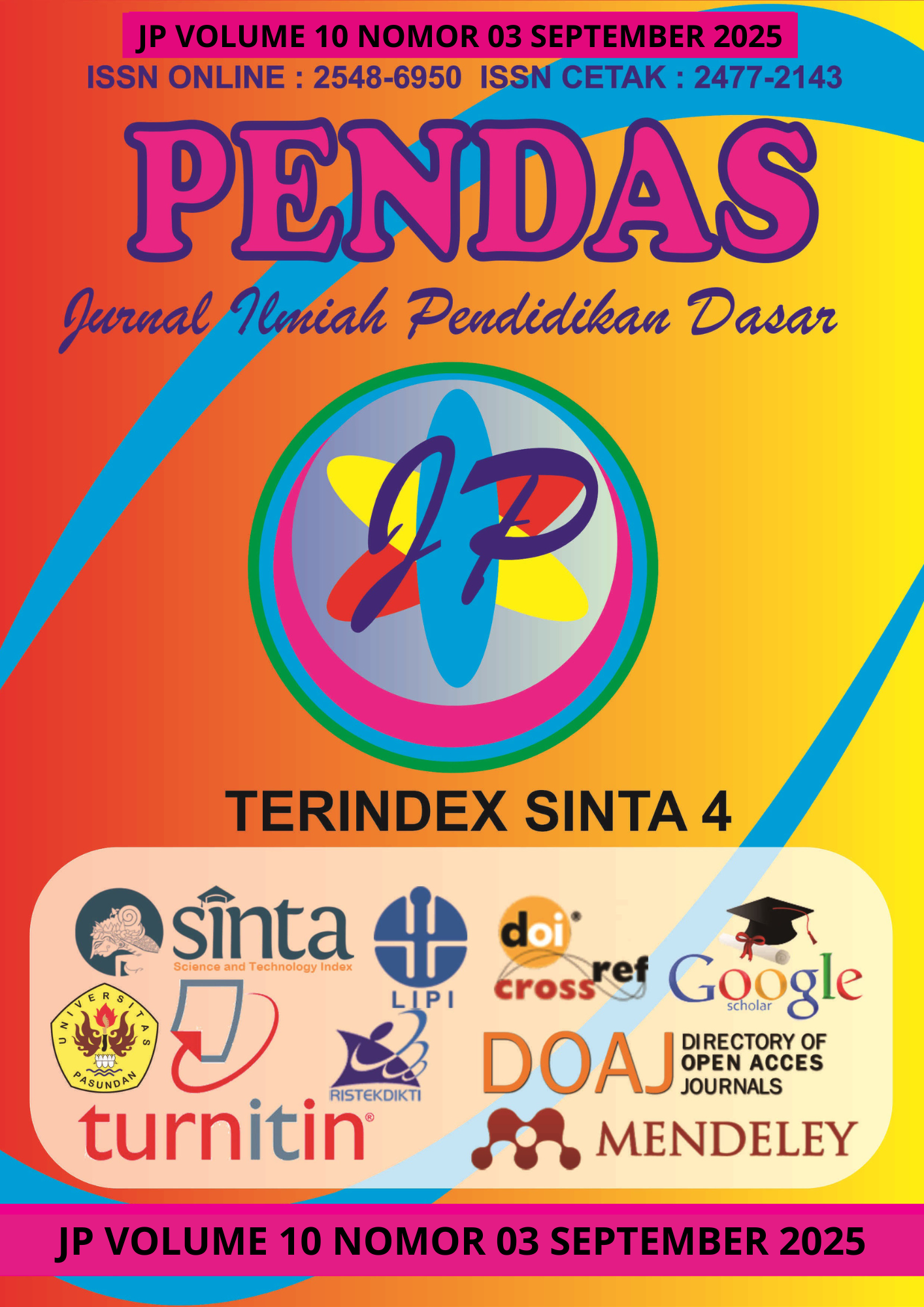PENGEMBANGAN MODUL PEMBELAJARAN MATEMATIKA BERBASIS DISCOVERY LEARNING UNTUK MENINGKATKAN PEMAHAMAN KONSEP MATEMATIKA SISWA UPTD SMP NEGERI 2 LOLOFITU MOI
DOI:
https://doi.org/10.23969/jp.v10i03.33101Keywords:
Understanding mathematical concepts, learning modules, discovery learning model ADDIE modelAbstract
This research is based on initial observations conducted at the UPTD of SMP Negeri 2 Lolofitu Moi, which revealed that the teaching resources used were still limited and students' understanding of mathematical concepts was still low. The teaching materials were too complex for students to understand, so they had to rely entirely on teacher guidance in the learning process. The solution to this problem is the use of learning modules that are straightforward and sufficiently basic for students. To improve students' understanding of mathematical topics, this research aims to create a learning module based on discovery learning that is valid, useful, and efficient. Development research is the term for this type of research. The development model used is the ADDIE model, which consists of five stages: analysis, design, development, implementation, and evaluation. Learning tests, validation questionnaires, and response questionnaires were used as research tools. Qualitative and quantitative data were used in this study. Qualitative data consisted of validator comments and recommendations on the learning module that had been created. Meanwhile, quantitative data consisted of learning outcomes, teacher and student response surveys, and validator questionnaire findings. The learning module that had been created was evaluated and declared valid in terms of material validity (content), language validity, and design validity based on the research findings. Furthermore, with a practicality rating of 90% and a teacher practicality rating of 96.43%, this learning module was also highly beneficial for students. With a high average score of 80% and a classical completion rate of 84%, which is considered very effective, this learning module also successfully helped students understand mathematical concepts. Thus, it can be said that the discovery learning-based learning module that has been created has met the objectives and expectations of the research.
Downloads
References
Andriani, D. (2018). Metode Penelitian. Surabaya: Universitas Terbuka.
Dehong, R., Kaleka, M. B. U., & Rahmawati, A. S. (2020). Analisis langkah-langkah penerapan model discovery learning dalam pembelajaran fisika. EduFisika: Jurnal Pendidikan Fisika, 5(02), 131-139.https://online-journal.unja.ac.id/EDP/article/view/10533. Diakses pada 13 Februari 2025
Hamzah, A. (2019). Metode Penelitian Dan Pengembangan Research & Development .Malang : Literasi Nusantara.
Lase, S. (2020). Pengaruh Pendekatan Realistic Pendidikan Matematika (RME) Terhadap Kemampuan Pemahaman Konsep Siswa Kelas VIII SMP. Jurnal Review Pendidkan dan Pengajaran, 3(2), 462-468. http://dx.doi.org/10.31004/jrpp.v3i2.1694
Mubarok, A. (2021). Integrasi matematika dan islam dalam pembelajaran matematika. Jurnal Ilmiah Pendidikan Dan Keislaman, 1(1), 1–9. https://jipkis.stai-dq.org/index.php/home/article/view/1. Diakses pada 13 Februari 2025
Sugiyono. (2019). Metode Penelitian & Pengembangan (Research and Development). Bandung: Alfabeta.
Susanti, Y., AB, J. S., & Kirana, A. R. (2022). Pengembangan Modul Matematika Berbasis Connecting, Organizing, Reflecting, dan Extending (CORE) Pada Materi SPLDV Untuk Siswa Kelas VIII UPT SMP Negeri Bandar Lampung. Jurnal Ilmiah Mahasiswa Pendidikan Matematika, 4(1), 175–188. http://eskripsi.stkippgribdl.ac.id. Diakses pada 03 Januari 2025
Yusriadi, M., Amir, Z., & Berlian, M. (2023). Jurnal Pembelajaran Matematika Inovatif Pengembangan Modul Matematika Berbasis Kearifan Lokal Budaya Kampar. Jurnal Pembelajaran Matematika Inovatif, 6(4), 1513–1522. https://www.journal.ikipsiliwangi.ac.id/index.php/jpmi/article/view/16296. Diakses pada 03 Januari 2025
Downloads
Published
Issue
Section
License
Copyright (c) 2025 Pendas : Jurnal Ilmiah Pendidikan Dasar

This work is licensed under a Creative Commons Attribution 4.0 International License.














































